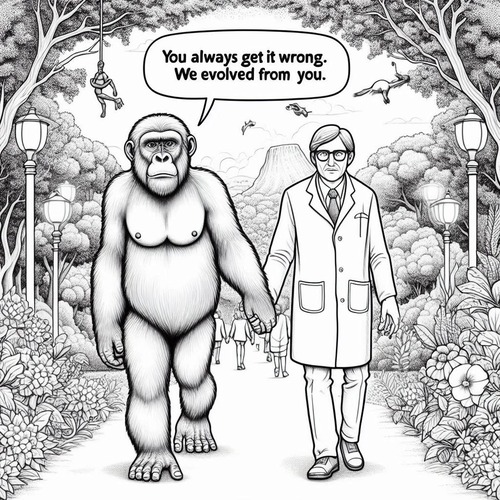The Kalam Cosmological Argument: A Case For God
EVERYTHING THAT BEGINS TO EXIST HAS A CAUSE…
Exploring the Cosmic Origins of Existence
What lies beyond the farthest reaches of space and before the birth of time itself? This profound existential question has captivated philosophers and scientists across epochs and cultures. The Kalam cosmological argument beckons us to peer beyond the misty veil of the Big Bang and contemplate the ultimate metaphysical reality: the origin of the entire universe from literally nothing.
In this metaphysical odyssey tracing backward through cosmic history, we encounter signs that may unmistakably point towards a transcendent, supernatural source of all reality—an eternally existent, omnipotent Creator. This ancient argument, first developed by medieval Islamic thinkers, rests on three deceptively simple premises that carry seismic implications.
Arising from medieval Islamic philosophy, this ancient argument offers three powerful, yet simple, premises that have reverberated down the ages like the voice of a wise prophet:
- Everything That Begins to Exist Has a Cause
- The Universe Began to Exist
- Therefore, the Universe Has a Cause
Sceptics point to the diversity of beliefs and rampant non-belief, and ask: if God truly exists, and His existence is that obvious, why are there all these varied responses? Or why doesn’t everyone recognize God as the universe’s first cause?
The multitude of our views about, and responses to, God doesn’t necessarily prove the non-existence of God. While we may all have an innate awareness of God’s existence, we each respond to this awareness in our own ways. Buried within the multiplicity of religions and philosophies, we consistently find core tenets hinting at something transcendent–a belief in realms beyond the physical, the existence of moral codes, an awareness of human sinfulness, a search for purpose and meaning. Even those professing atheistic worldviews wrestle with life’s biggest metaphysical questions.
The Christian may also remind the sceptic of Blaise Pascal’s suggestion that there’s a God-shaped vacuum in each of us that only the real God can fill, and the pretenders can’t. No pursuit of idols, or wealth, or power, or pleasure can ultimately fill this vacuum. Till we come to Him, we have a nagging sense there is something more to existence, some transcendent meaning and purpose we were created for, but are yet sadly missing.
Conclusion: The Implications of the Kalam Cosmological Argument
From the premises of the Kalam Cosmological Argument, a stunning conclusion emerges: the existence of an eternal, necessary, and immensely powerful First Cause or Creator. This First Cause is beyond the physical and temporal universe, existing independently and uncaused. Such a being is fundamentally different from the dependent, finite world we experience.
The Kalam offers a clear philosophical path to understanding God’s existence and essential attributes. It suggests an unimaginably great, eternal, simple, uncaused, supernatural, and incredibly powerful Source that is radically distinct from our finite cosmos. This conclusion may seem astonishing, but it leads us to the idea of a Supreme Reality—one that supports the entire structure of material existence. This reality is what we fittingly call God.
The Kalam presents a logical and straightforward explanation for the mysteries of the universe’s origin. For those open to exploring these profound questions, the argument offers a strong case for God’s existence, encouraging deeper philosophical and existential reflection. At the very least, the Kalam points us towards the vast, unexplored realms of existence, prompting us to consider the infinite mysteries that lie beyond our physical reality.
Related Reads:
- The Ontological Argument: Can We ‘Logic’ Our Way to God?
- Aquinas’ Quinque Viae: Timeless Arguments for the Existence of God
- The Universal Moral Oughts: Signposts to the Divine
- The Teleological Argument: Unveiling Design in a Universe of Wonder
- The Fine-Tuning Argument: Can Orchestras Compose and Conduct Themselves?
Editor's Pick

Self-Authentication: Why Scripture Doesn’t Need External Validation
"How can the Bible prove itself? Isn't that circular reasoning?" This objection echoes through university classrooms, coffee shop discussions, and [...]

Do Christians Need Holy Shrines? Why the Reformed Answer Is No
Walk into a medieval cathedral and you'll encounter ornate shrines, gilded reliquaries, and designated "holy places" where pilgrims gather to [...]

I Want To Believe, But Can’t: What Do I Do?
"I want to believe in God. I really do. But I just can't seem to make it happen. I've tried [...]

BC 1446 or 1250: When Did the Exodus Really Happen?
WHY REFORMED SCHOLARS SUPPORT THE EARLY DATE Many a critic makes the claim: “Archaeology has disproven the biblical account [...]

Does God Know the Future? All of It, Perfectly?
Think about this: our prayers tell on us. Every time we ask God for something, we’re confessing—often without realising it—what [...]

Can Christian Couples Choose Permanent Birth Control?
Consider Sarah, whose fourth pregnancy nearly killed her due to severe pre-eclampsia, leaving her hospitalised for months. Or David and [...]

Bone of My Bones: Why Eve Was Created From Adam’s Body
"This at last is bone of my bones and flesh of my flesh!" Adam's joyful exclamation upon first seeing Eve [...]

Is Calvinism Fatalism in Christian Disguise? Think Again
We hear the taunt every now and then: "Calvinism is just fatalism dressed up in Christian jargon." Critics argue Reformed [...]

Can Churches Conduct Same-Sex Weddings?
In an era of rapid cultural change, churches across America face mounting pressure to redefine their understanding of marriage. As [...]

Gender Reassignment: Can Christian Doctors Perform These Surgeries?
In the quiet of a clinic, a Christian physician faces a challenging ethical question. A patient sits across the desk, [...]
SUPPORT US:
Feel the Holy Spirit's gentle nudge to partner with us?
Donate Online:
Account Name: TRUTHS TO DIE FOR FOUNDATION
Account Number: 10243565459
Bank IFSC: IDFB0043391
Bank Name: IDFC FIRST BANK






